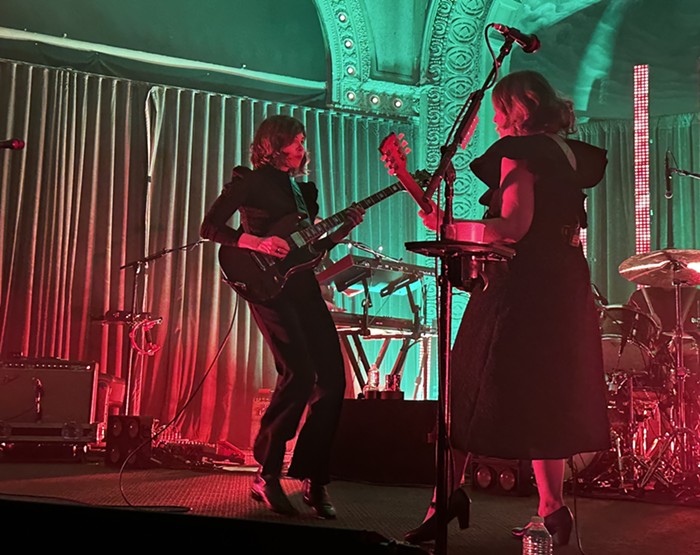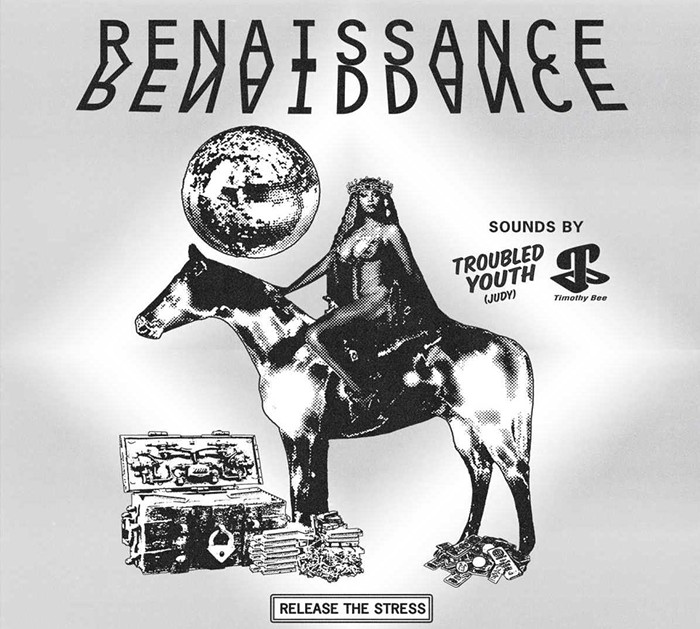For Dr. Julian Saporiti, No-No Boy is an ongoing research project, an adventurous sound experiment, and an outlet for his brainy and bright folk songs. While it began as a path to a PhD in American studies and ethnomusicology it has since become so much more.
“It’s a place-making project for myself,” he told the Mercury. “It’s like a cartography of the soul, if you want to be really pretentious about it.”
Saporiti is self-deprecating by nature, but there's nothing pretentious about No-No Boy, the musical project he started while attending Brown University in Rhode Island. Originally a vehicle for his doctoral dissertation, Saporiti has now produced around 100 songs and three albums under the moniker, including Empire Electric, released September 29 by Smithsonian Folkways Recordings.
Saporiti will celebrate the new album Wednesday with an evening of live music, storytelling and multimedia history presentations at the Mission Theater, as part of the McMenamins History Pub series and co-sponsored by the Oregon Historical Society and the Japanese American Museum of Oregon.
But back to the soul cartography: Saporiti was born and raised in Nashville; his father was an Italian American musician and his mother a painter who fled war in Vietnam in the 1970s.
“I felt like the map I was given was very burnt or blank when I was a kid, as far as who I am. And this is very common for the kids of refugees or people of mixed race or any number of marginalized people who don’t quite fit in,” he said.
“And certainly growing up in the South in the ‘90s, I had to distance myself from my Asian side as much as possible as a kind of self-preservation,” Saporiti continued. “So it took 20 years—till I went to grad school in Wyoming, of all places—where I could finally sink my teeth into these interesting histories of people who looked like me.”
Traveling through remote areas of the American West, Saporiti stumbled upon sites of Asian American history, he said, and he leaned into his interest in history, conducting interviews, digging into archives, and making field recordings, then turning all of that material into songs. His 2021 album 1975 contains both heartening tunes about the enduring spirit of Asian American artists and harrowing tales of anti-immigrant violence, from decades-ago massacres to the detention centers in use today.
In February of 2020, Saporiti and his wife, collaborator and co-producer Emilia Halvorsen Saporiti relocated to Portland, where Saporiti continued researching and writing songs that dig into not only Asian American stories, but also American experience, intergenerational trauma, and his own family’s history. “I never knew you but I love you, kid,” he sings in “Sayonara,” seemingly to an old photograph. “You told me where I come from / Told me that I’m alright.”
Sonically, No-No Boy’s music is a dizzying but cohesive collage of styles: Guitar-based indie-folk, electronic textures, samples chopped up and reconstituted, spoken word, field recordings of chirping birds and rushing water, guest vocalists, distinctly Eastern sounds, distinctly Western sounds. The result is something like Sufjan Stevens’ fabled 50-albums-for-50-states project, but focused on the Asian experience in America and beyond.
It’s a project that Saporiti says has just about run its course, but not before providing a model for others who want to dig into their own past by doing real historical research and turning it into art. And not before helping Saporiti himself fill in at least some of that blank map he remembers from his childhood.
“That map will never be whole—the way that it is for some kid who can trace his family back to whatever castle,” he said.
“But it’s beautiful in its own way, you know? And that’s all we have sometimes,” he continued. “So to be able to express that through songs, stories, and the Vietnamese language juxtaposed with the English language that I speak... I find that’s really cool. And I feel strong. I feel good. I feel probably how I should have felt when I was 12 years old, and I was negating all of my very rich heritage. Personally, that’s what this has done for me.”
No-No Boy performs at the Empire Electric album release at Mission Theater, 1624 NW Glisan, Wed Oct 4, 8 pm, $15-20, tickets here, all ages



















